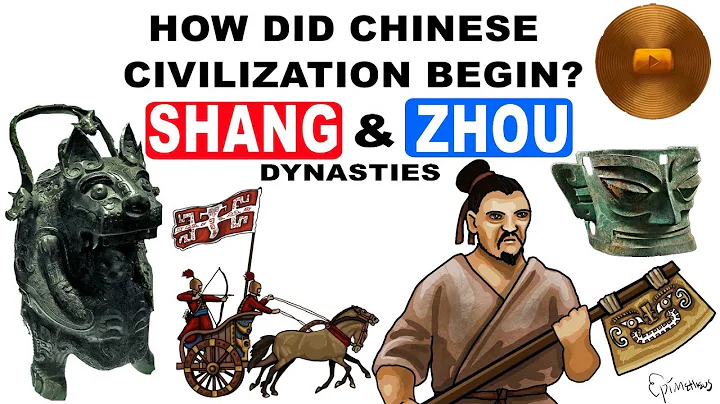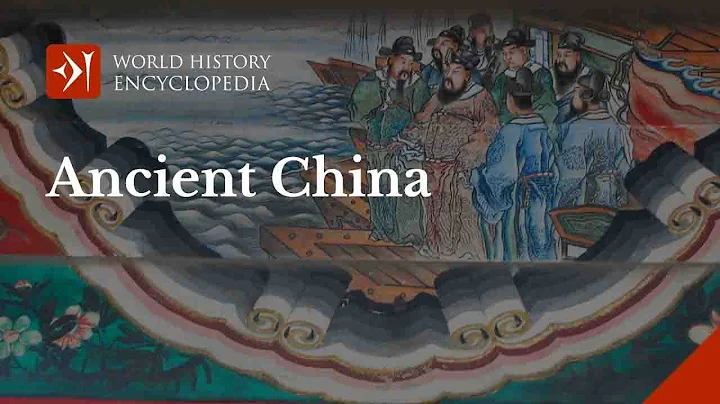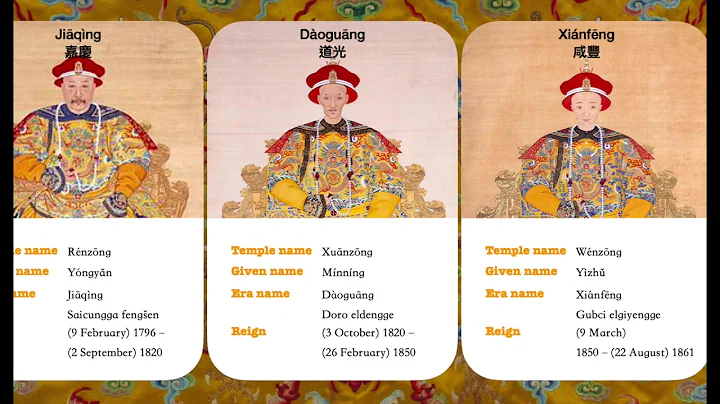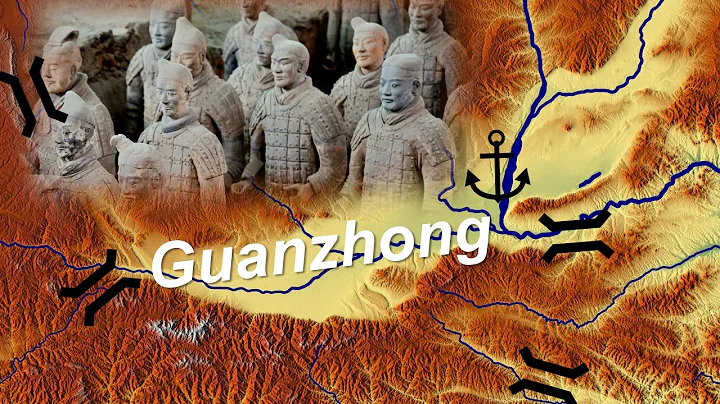The history of the early period when the Qing Dynasty moved its capital to Beijing was called the Shunzhi Dynasty. The actual ruler in charge of the government was Dorgon, the emperor's uncle and the regent. If Dorgon had not died of an accidental injury while hunting in the fortress in the seventh year of Shunzhi, whether Emperor Shunzhi could pro-government was in doubt.
Emperor Shunzhi Fulin was promoted to the throne at the age of 6. He was still a child who was not familiar with the world. He respected and feared his fourteenth uncle Dorgon. He and his mother Xiaozhuang always followed Dorgon's lead. In his later period, Dorgon was so successful that he dominated the government and the public. He almost did whatever he wanted. Emperor Shunzhi, mother and son had no power to fight back even if they swallowed their anger.

(Stills)
After the death of his elder brother Huang Taiji, Dorgon failed to compete with Haoge for the throne. As a trade-off, the emperor's ninth son Fulin was pushed to the throne. But his inner dream of being an emperor has never been extinguished, and his coveting for the throne cannot end here.
In April of the first year of Shunzhi (1644), the child emperor Shunzhi was manipulated by his elders and performed a ceremony to worship Dorgon as a general in the Dugong Hall. He personally gave his fourteenth uncle the imperial seal of the general and ordered him to lead the army southward and enter the country. Guan and Li Zicheng and the Ming Dynasty competed for the world.
Soon after taking office, Dorgon's core position became prominent and his power continued to rise. Prince Zheng Jierhalang, who also assisted the government, ordered all ministers to report everything to Prince Rui Dorgon in advance, and to write memorials and titles with Dorgon first.
After four years of Shunzhi, if subordinate officials still referred to the "Emperor's Uncle and Regent" as "Nine Princes" in their memorials, or omitted words without using the full name, they would be dismissed by Dorgon. Moreover, Dorgon declared that "from now on, kneeling and worshiping will always be stopped wherever people perform rituals." He had already stopped paying respects to Emperor Shunzhi.
At the end of the fifth year of Shunzhi, Dorgon's authority took another step forward and became emperor and regent. Afterwards, Dorgon "used the ceremonial guards, music, and bodyguards to imitate the Supreme Being." In other words, Dorgon not only held real power, but also began to be on par with the emperor in terms of etiquette.
At this time, no one can influence Dorgon's words and deeds. Although he lives under one person, that person is his nephew who has just turned 10 years old. He is an orphan and a widower, and he is useless.
From then on, Dorgon no longer asked humbly for instructions on all government affairs. If he did not follow the emperor's orders, he would always give orders and decrees, just like the emperor.
However, Dorgon lacked the fairness and kindness of a "wise king". He practiced nepotism everywhere and dismissed and promoted officials at will. In particular, the kings, Beile , Beizi , and dukes were not allowed to enter the court to report matters, but the above-mentioned people were ordered to go to his regent's palace every day to wait for orders. He blatantly ignored the imperial court and Emperor Shunzhi.
Dorgon has always held a grudge against Hauge, the eldest son of Huang Taiji, who had competed with him for the throne. In the third year of Shunzhi, Dorgon took advantage of Hauge's bravery and fighting skills and ordered him to serve as General Jingyuan and lead his troops to Sichuan to suppress the Daxi Army of Zhang Xianzhong. In February of the fifth year of Shunzhi, Hauge returned to Beijing in triumph. Not only was he not rewarded, but he was imprisoned by Dorgon for harboring subordinates, falsely claiming military merit, and promoting the criminal Yangshan's younger brother Gisai. A month later, Hauge died unjustly in prison. Dorgon also shamelessly took one of Hauge's fortunes, his niece-in-law, as his own.
In August of the seventh year of Shunzhi (1650), Dorgon ascended the throne and honored his biological mother, Taizu's concubine Ulanala, as "Queen of Xiaolian, Gongmin, Xianzheren and Zantianli Shengwu", and she enjoyed the Imperial Ancestral Temple. Emperor Shunzhi, Xiaozhuang and his court officials did not raise any objections.

(Stills)
In historical records, Emperor Shunzhi once commented on Dorgon: "In every conquest, my uncle initiated surprises. Attacking cities must be defeated, and field battles must be won. My uncle is young and upright, has no hidden righteousness, and is loyal to the country. Help me achieve great things." He also said, "He also assisted me in ascending to the throne, assisted me in my work, and thought about my merits, which is higher than that of Duke Zhou...". It can be seen how humble he was at that time.
However, Dorgon responded to the saying "If you do too much injustice, you will die."
In November of the seventh year of Shunzhi, Dorgon went hunting outside Gubeikou. While hunting, he accidentally fell off his horse and was injured. On the ninth day of December (December 31, 1650), he died of serious injuries in Karacheng, outside Gubeikou. He was 39 years old.
Judging from the initial behavior of Emperor Shunzhi after Dorgon died unexpectedly, he had no intention of pursuing Dorgon and punishing him.
Historical data says: "Emperor Shunzhi mourned after hearing this. He led his ministers in mourning five miles outside the Dongzhi Gate to welcome Dorgon's body. He issued an edict to honor Dorgon as "a man of great virtue, monasticism, broad deeds, meritorious service, peace of mind, and sincerity in government." "Emperor Yi", the temple name became the clan, and the funeral ceremony was in accordance with the imperial ceremony. In the first month of the eighth year of Shunzhi (1651), Borjijit, the concubine of Dorgon's main palace, was honored as the Queen of Yi. His nephew enjoyed the Taimiao Temple. Dorgon had no children. Prince Dorbo of Yu was given the title of successor prince, with a salary three times that of other kings. He also appointed Dorgon's close servants Zhan Dai and Suk Saha as ministers of affairs.
At this time, Dorgon was alive. The unjustified emperor's dream has all come true. Dorgon was 39 years old when he died, and the young emperor Fulin (Shunzhi) was 13 years old. Based on the age situation, Dorgon was in his mature and capable years. , and the 13-year-old Emperor Shunzhi was in the stage of being able to distinguish right from wrong. When it came to grasping the current situation, playing political tricks, and influencing government affairs, Emperor Shunzhi was completely defeated. Moreover, Dorgon already had power in his hands, how could he easily allow the young man to do so. The emperor personally ruled?
If Dorgon hadn't died suddenly during this period of history, it's hard to predict how long Emperor Shunzhi would have been a puppet emperor.
The key is that Dorgon not only did many unjust things to his nephew, the emperor. He also had many grievances against other princes and ministers, especially Prince Zheng Jierhalang, who had long been ostracized and defeated by him. Therefore, less than two months after Dorgon's death, Jierha was the leader. Taking the lead of Lang, Dorgon's political opponents came out to overturn the case and exposed his crime of treason.
The princes and ministers first discussed the crime of Dorgon's half-brother Azige . January 26, 8th year of Shunzhi. , Fulin issued an order to imprison Azige for conspiracy. Twelve days later, the 14-year-old Fulin announced his pro-government in the Hall of Supreme Harmony.
At the request of Prince Zheng and others, Emperor Shunzhi decided to restore the status of the two yellow banners. The two red flags, Mandahai, Wakda, Jieshu, Luo Keduo and others, saw that the momentum was not right, and they also switched sides.

(Still)
Soon, The courtiers discussed Dorgon's fourteen treasonous crimes. Emperor Shunzhi, who had been suppressed for many years, finally became proud and ordered to seize all the seals of Dorgon during his lifetime and after his death.
Dorgon's tomb was destroyed and his body was exhumed. However, his influence was still there. It was urgent to eliminate his influence and regain the weakened imperial power. After Emperor Shunzhi came to power, he ordered the "reuse of princes" in the ministry. Among them, Prince Zheng was severely attacked by Dorgon. Erhalang began to hold great power.
In the second month of the eighth year of Shunzhi, Fulin ordered the execution of Ganglin and Qi Chongge, , powerful academics who had flattered Dorgon. In August, he killed Gu Shan'e. Tan Tai, the minister of truth and official affairs, ordered Azig to commit suicide in the imprisoned state in October. This series of actions dealt a heavy blow to and eliminated Dorgon's remaining power. Fulin gathered all the power in one body and became the real Shunzhi Emperor.
In the first month of the 10th year of Shunzhi, Fulin issued an order to change the situation where only the Manchu ministers were the ones to report. After that, the ministers and ministers of the Manchu and Han Dynasty and above were asked to report the report together. Fulin read " Tongjian" and asked the minister who among the saints in history was the best. Chen Mingxia told him Tang Taizong , and Emperor Shunzhi thought that Ming Taizu's various legislations could benefit future generations.
In March of this year, he gave Taichang Qing Tang Ruowang the title of Tongxuan Teacher. Order all ministries and agencies to stop using the green head brand. In April, he personally tested Hanlin official Cheng Kegong and others. In May, Han University scholars were added to the three inner academies, two from each academy. Establish thirteen yamen .
In the first month of the twelfth year of Shunzhi, Fulin ordered the "Shunzhi Great Instructions" to be revised and the "Zi Zheng Yao Lan" to be compiled. In April, an edict was issued to revise "Taizong's Holy Instructions" and "Taizong's Holy Instructions". In May, Prince Zheng Jierhalang died of illness. In June, the palace was named the Forbidden City , the back mountain was Jingshan, and the south platform of Xiyuan was Yingtai. Thirteen yamen were ordered to erect iron signs, strictly prohibiting internal eunuchs from intervening in politics, and the eunuchs they set up were no more than fourth grade.
Two months after Dorgon's death, a sudden reversal occurred, causing him to plummet from the pinnacle of honor to dust, which was somewhat dramatic.However, Dorgon's special contribution to the Qing Dynasty's control of the Central Plains cannot be concealed by some treason charges cited by political opponents.
In the first month of the twelfth year of Shunzhi, Peng Changgeng, deputy director of the official affairs department, and Xu Er'an, the first-class viscount, respectively wrote letters praising Dorgon's achievements, almost every sentence of which made sense. However, Prince Zheng Jierhalang, who regained the emperor's trust, scolded him horribly and was exiled to Ningguta and exiled to the army.
As late as a hundred years later, in the forty-third year of Qianlong (1778), Emperor Qianlong issued an edict to officially overturn Dorgon's case. His evaluation of this ancestor is: "Prince Dorgon, the regent, was powerful and independent for many years, sweeping away the atmosphere of thieves and clearing the palace. He dispatched the kings to chase and annihilate the bandits, pacify the frontiers, and create a scale. Feng Shizu entered the capital of Chengdu. The cause of unification is the most meritorious." He also ordered his tomb to be restored, his title to be restored, "his posthumous title is Zhong, and he is to be included in the jade certificate".
Such an ironclad case has been turned over again, and the Qing Dynasty's evaluation of Dorgon has finally come to a conclusion.

(Portrait of Dorgon)
During Dorgon's short life, military warfare took up most of his time and energy. During the 17-year reign of his elder brother Huang Taiji, Dorgon mainly experienced uniting the army in combat, and gradually became Huang Taiji's confidant, thus accumulating military strength and political experience.
In the history of the founding of the Qing Dynasty , Dorgon was undoubtedly one of the key figures who determined the fate of the Qing Dynasty. At the critical moment of the rise and fall of the Ming and Qing Dynasties, he made a decisive decision to enter the pass and seize power. At the critical moment, he commanded the decisive battle of Shanhaiguan and defeated Li Zicheng in one fell swoop. The Qing Dynasty was able to enter the Pass and set a trip to Beijing. It should be Dorgon who ushered in a new era in the history of the Qing Dynasty.
Emperor Shunzhi, who had been puppeted by Dorgon, his ambitious uncle, for many years, had made little progress since taking office, showing his talent and ability in governing the country. Later generations commented on him: Although this emperor was young, he showed far-sightedness in governing state affairs from the beginning. He was praised by all classes and groups, surpassing the most intelligent ministers with gray hair. He is no longer a puppet and has shown amazing judgment in handling state affairs.
Sincerely thank you all for reading "Spring and Autumn in the Palm". If you like it, you can click on the prompt "Subscribe" or "Follow" in the upper right corner of the column. Let's appreciate historical anecdotes and recall historical events... (Disclaimer: The pictures in this article are all from the Internet)





















